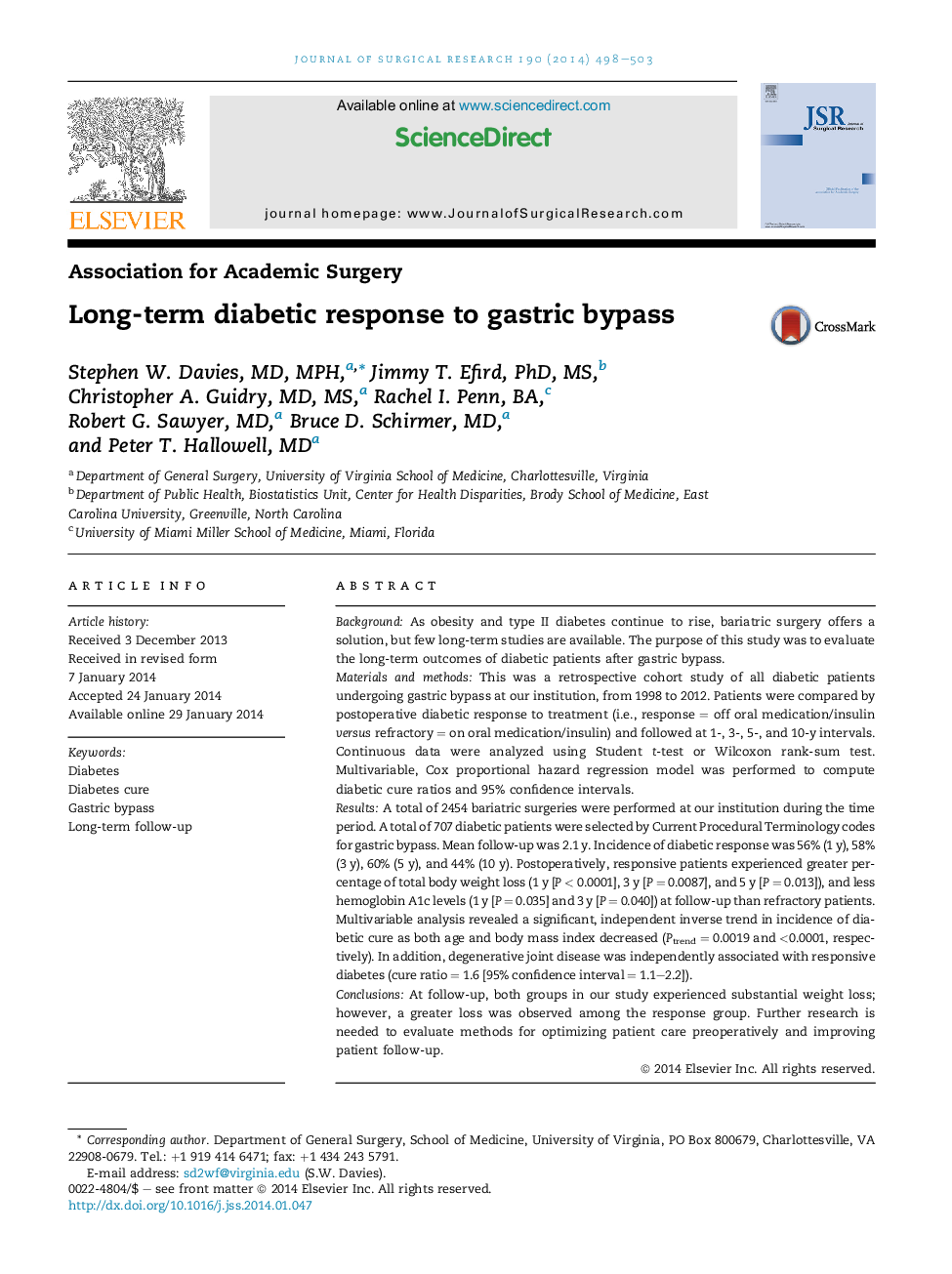| Article ID | Journal | Published Year | Pages | File Type |
|---|---|---|---|---|
| 6253914 | Journal of Surgical Research | 2014 | 6 Pages |
BackgroundAs obesity and type II diabetes continue to rise, bariatric surgery offers a solution, but few long-term studies are available. The purpose of this study was to evaluate the long-term outcomes of diabetic patients after gastric bypass.Materials and methodsThis was a retrospective cohort study of all diabetic patients undergoing gastric bypass at our institution, from 1998 to 2012. Patients were compared by postoperative diabetic response to treatment (i.e., response = off oral medication/insulin versus refractory = on oral medication/insulin) and followed at 1-, 3-, 5-, and 10-y intervals. Continuous data were analyzed using Student t-test or Wilcoxon rank-sum test. Multivariable, Cox proportional hazard regression model was performed to compute diabetic cure ratios and 95% confidence intervals.ResultsA total of 2454 bariatric surgeries were performed at our institution during the time period. A total of 707 diabetic patients were selected by Current Procedural Terminology codes for gastric bypass. Mean follow-up was 2.1 y. Incidence of diabetic response was 56% (1 y), 58% (3 y), 60% (5 y), and 44% (10 y). Postoperatively, responsive patients experienced greater percentage of total body weight loss (1 y [P < 0.0001], 3 y [P = 0.0087], and 5 y [P = 0.013]), and less hemoglobin A1c levels (1 y [P = 0.035] and 3 y [P = 0.040]) at follow-up than refractory patients. Multivariable analysis revealed a significant, independent inverse trend in incidence of diabetic cure as both age and body mass index decreased (Ptrend = 0.0019 and <0.0001, respectively). In addition, degenerative joint disease was independently associated with responsive diabetes (cure ratio = 1.6 [95% confidence interval = 1.1-2.2]).ConclusionsAt follow-up, both groups in our study experienced substantial weight loss; however, a greater loss was observed among the response group. Further research is needed to evaluate methods for optimizing patient care preoperatively and improving patient follow-up.
